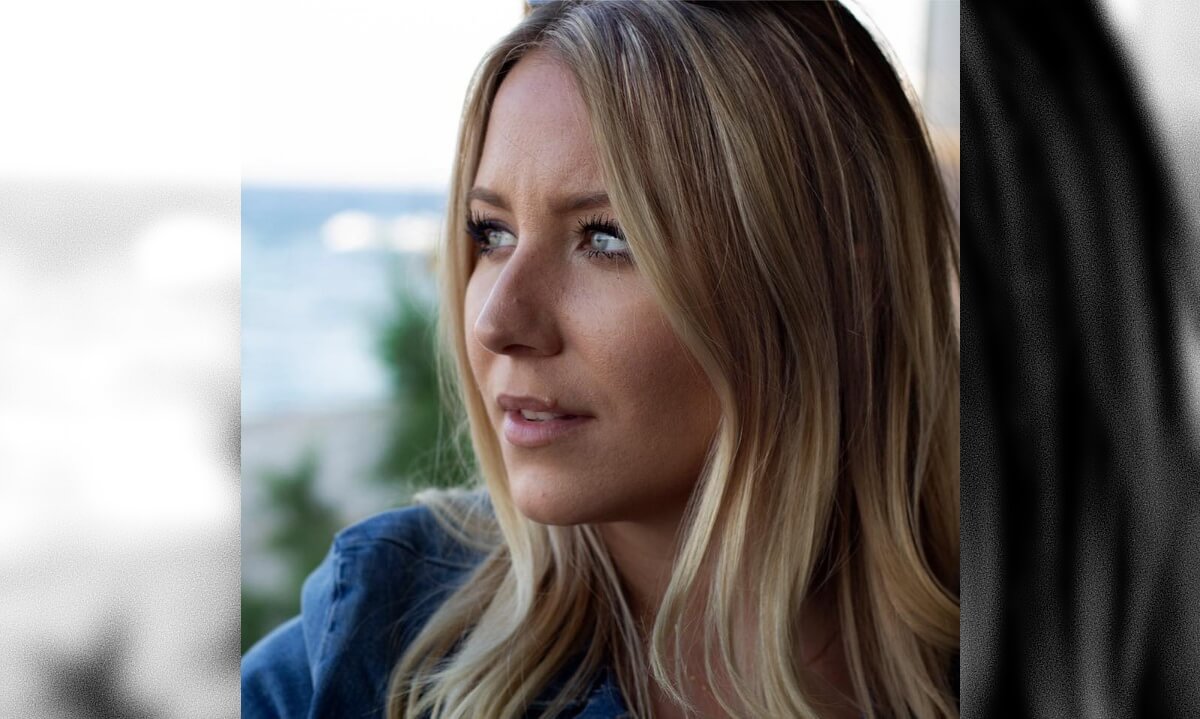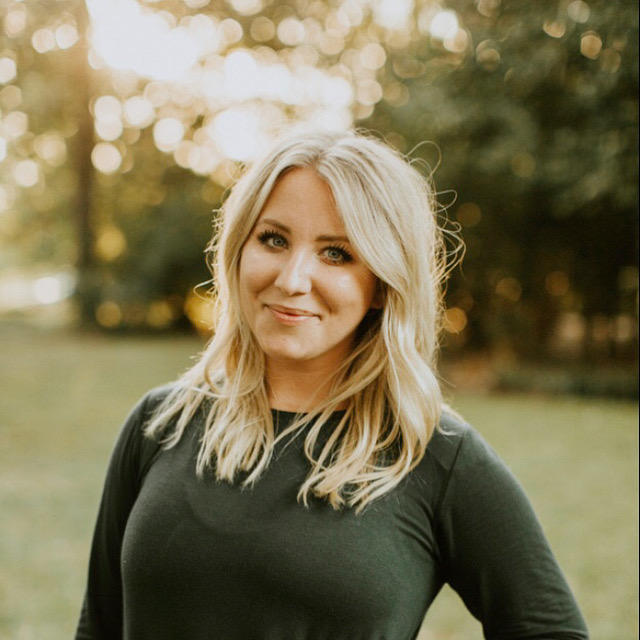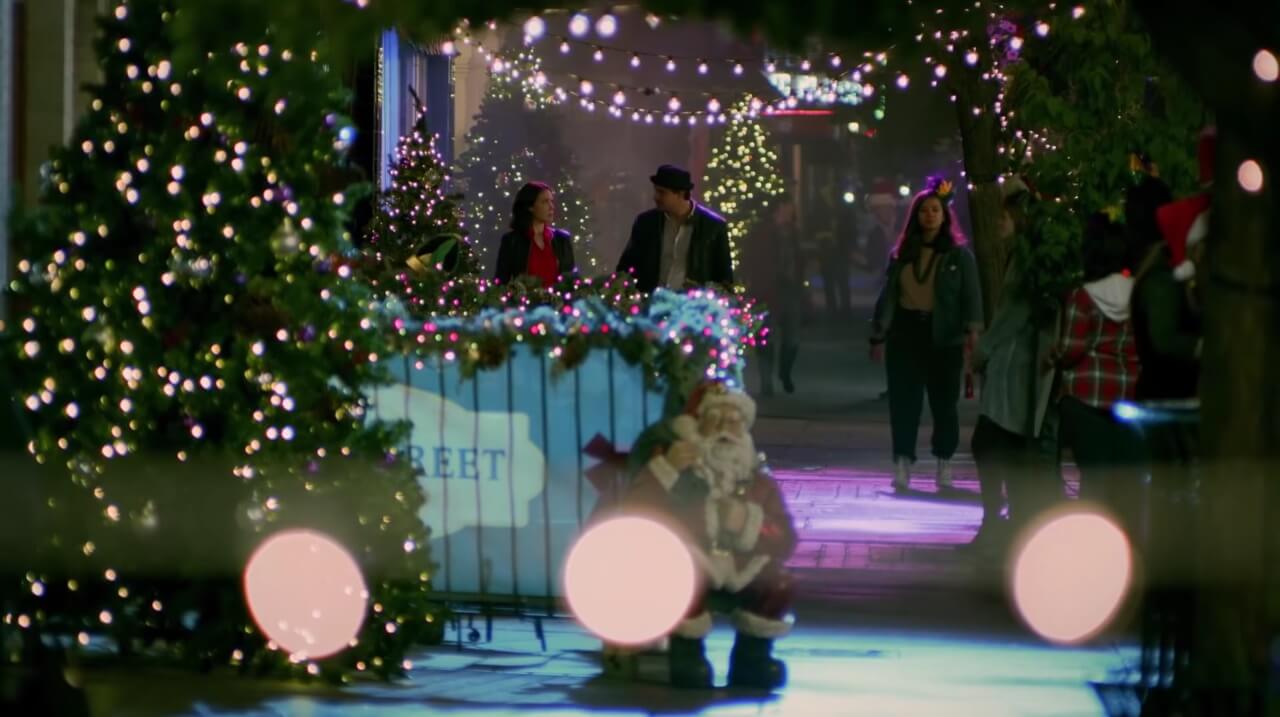Interview:
Screenwriter
Cassie Doyle
Screenwriter Cassie Doyle talks what makes a good movie and her path as a professional storyteller

There are a few ingredients to a successful screenwriting path that are critically overlooked by the public that simply sees a writing credit and the finished movie:
- Develop a lifelong urge to write dialogue and action and journal everything since you were 12.
- Work diligently reading hundreds of scripts in a network assistant position and learn from it.
- Ascertain that the scripts you are reading are mediocre. Write better scripts. Get successfully greenlit for your scripts.
- Keep writing forever.
Okay, maybe that’s not every screenwriter’s specific path, but that’s how Cassie Doyle did it.
Cassie is a screenwriter who has written prolifically over the past five years. Specifically, she has thrived in the niche of Christmas-themed movies for the Lifetime network. She has written The Christmas Contract, Radio Christmas, A Christmas in Tennessee, The Road Home For Christmas, and most recently: The Christmas Aunt. She spoke to us about her process as a screenwriter, her path into it, and the collage of components that come together to make a good movie work.
I’ve read through your Instagram critiques of movies and television that came out over the past year or so. My informed hunch is that outside of your own screenwriting, you’re also an avid movie-watcher/critic (I am in total passionate agreement that Bo Burnham’s Inside is a must-watch). What have you seen recently that blew your mind, and what have you seen that made you go, “Oh no, everybody needs to turn this off and shun it immediately.”
“I recently watched The Man from U.N.C.L.E. on a plane–it’s from 2015 I believe–and that one really blew me away. It’s a reminder of what a really good heist/spy/action thriller can look like. There are so many mediocre ones–I also watched Uncharted on the same plane–and also The Lost City on a recent plane, and although they aren’t spy thrillers, they are sort of in that same genre of action/mystery. I delved into why they aren’t very compelling; when you look at their scripts, they are interesting and pretty solid and yet, the movie feels so mediocre. And I think a lot of that has to do with the details that many studios feel are probably not important. The Man from U.N.C.L.E. has so much cinematic style–it has a very purposeful way it’s edited that makes it unique and also it has a soundtrack. So many films these days don’t have a soundtrack. It’s crazy. I think these little things show how you can elevate a script and conversely, deflate one.”
You’ve written five Christmas tv movies in just about the past four years. Thematically, there’s often an element of small-town charm mixed with a sense of a community bonding together over a shared conflict or goal, like a town coming together to stop a real estate developer. How does the development process work for one of your scripts – does the network approach you looking for a certain type of movie, or do you write a script and then pitch it?
“I started out writing the first few movies as a script and pitched it to them that way–I feel like you have to do this when you’re first starting out. Now, I pitch concepts; but even then I feel like if you really want to sell something you should write the script first. In terms of concept, people watch Christmas movies to feel cozy and warm; so writing a movie about the hustle and bustle of the city wouldn’t really work for this specific genre.”

Cassie Doyle
Your professional niche thus far has been writing films with a plot centered around Christmas. How did you find yourself in the realm of Christmas movies?
“I was an assistant at A+E Networks for two years. My boss was the head of scripted content at Lifetime and I read about 200 Christmas script submissions. After the 95th one, I found myself saying, “I can write a better Christmas movie than this.” And so I challenged myself to do it. I came to my boss and was like hey, I have two Christmas movies–I’m not sure I can do anything with them because I work for a creative company, but she was insistent that I submit them to Lifetime and that she would make sure they would be “carved from my contract” so to say; so that I own them and not the company. This is something that’s important to think about if anyone is working at a creative company–read all your contracts and make sure you independently own your own work. After that I was really lucky, Lifetime only greenlit six original Christmas movies at the time and they picked both of my scripts. I owe a lot to the supportive team at Lifetime–my boss, my colleagues, and even the higher-ups were all so encouraging.”
I’m talking on the micro inside-a-single-day level here: What does your writing process look like? How does your day play out with structuring a script, writing it, or outlining a plot?
“I’m a hot mess in terms of structure to my day. I used to be a lot more disciplined, but since COVID I’m kind of all over the place. Thinking about yesterday, I wrote out a to-do list which included a watch list, brainstormed some ideas for a movie I want to write. This is the very early stages so I’m trying to figure out the overall plot. Then I hopped on a phone call about a pitch I have–we attached some talent to the project. Then I had to write out a thoughtful email in concerns to that pitch. And I’m also working on writing things up for my travel website from my recent trip to Europe. I also have two Airbnbs that I manage, so I had a couple things to answer/do in regards to that.
I would say that’s pretty typical.”
“The Road Home for Christmas”
As someone who has written several movies centered around a specific holiday with a certain tone – for example, it’s unlikely you would be able to throw a plot twist into one of your films about a series of Christmas serial murders – where do you draw creative inspiration to write about a theme you may have done before but to do it with a sense of inspiration or creative fulfillment?
“There are always creative challenges to these films; most of the time it’s how can I make this super compelling and interesting to watch within the budget. I wrote a road trip Christmas movie that was fun but challenging because of all the locations you need. So having to think about how to reuse certain locations or sets, limiting speaking characters, etc. to make sure the movie could feasibly get done was rewarding. In Radio Christmas there was a twist ending to it that was really fun to write and watch–I enjoy writing Mystery so that one was creatively tough to figure out, as all mysteries are. I remember one time–I was still working at A+E–I got a couple co-workers to sit down with me at my cubicle to help me bounce ideas off of them, because I was stuck at a certain point.”
You are a world traveler and have been…well, kind of everywhere. Do you find your travel experiences impact your writing?
“Absolutely. And in different ways than you might think. I wrote a summer camp pilot called “Sleep Away” based off of my experience doing the Full Moon Party in Thailand. Basically, everyone at the hostel stayed there for five nights and we kind of did everything together–including playing a few summer camp-type games and so I named all the characters after the friends I made in Thailand.
And in more obvious ways, I’m writing a global spy/action type mystery right now and without giving too much away, I found out recently that something that’s important to my movie is hidden in a town in Sri Lanka I’ve spent a lot of time in. So, yes, it helps a lot.”
What do you feel is most important to establishing a quality script? Is it structure, voice, emotional impact?
“Like I said before, film is so collaborative–you can write the best movie ever written but in the hands of bad actors or a bad director, it’ll seem super cheesy and weird. And vice versa. I also think certain aspects are important to certain genres. Plot doesn’t really matter in a coming-of-age film–it’s about characters and dialogue. But, plot is crazy important when you’re making a who-dun-it like Knives Out. So it just depends.”
I want to go back to Cassie Doyle: Origins. When did you first realize you wanted to be a professional screenwriter, and what path did you take to get there?
“I’ve always been a storyteller, I’ve been journaling since I was 12. But when I was 16, I wrote a novel or novella really. And it was terrible. I really didn’t care about writing the flowery stuff. It was mostly dialogue and specific action lines. I cared more about what the camera was doing than going into paragraphed tangents. So, that’s when I realized that I was a screenwriter only.”
What kind of goals do you currently have creatively? Is there a specific project that you’d love to write or a collaboration you’d love to be a part of?
“My short-term goals are to get hired in a writer’s room for a tv show. And to keep making movies.
Long-term goals: I’d like to be Shonda Rhimes–meaning that I want to write whatever I want and have a studio greenlight it immediately, haha. I really like writing period tv shows, but it’s difficult to get those made. I want to write a couple Broadway musicals. I have a script that I’d like to be made into a movie, then made into a Broadway musical, then made into a musical movie. And I’ve already written a couple songs for it.”
What’s next for you? Are you writing, traveling–maybe letting something percolate before spilling it out into 90 pages?
“Yep, all of the above pretty much all the time.”
SUBSCRIBE TO OUR WEEKLY NEWSLETTER
No spam, we promise! Just the latest on Louisiana filmmakers.

Fable House is a video production company based in Baton Rouge, Louisiana that specializes in production for film, video, commercials, and TV. Our team are experts in physical production, post-production, and VFX. We produce content for major brands, TV networks like Syfy and Lifetime, and provide production services to Louisiana’s never-say-die indie filmmakers.

